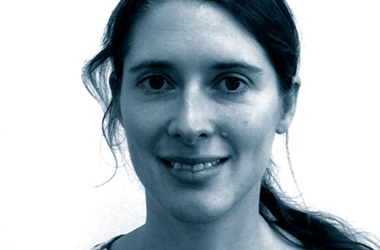Over the coming month, I’m moving from a salaried role in a city centre super-practice which refers to one hospital trust, to a far smaller practice (approx 5,000 patients) which refers into another trust. This past month, I’ve been doing locum work for the new practice, while working out my notice at the old.
The two practices are poles apart in how they’re organised. One has a duty system which fields hundreds of calls daily, alongside a team of different clinicians, with specialised clinics for complex patients, frailty, asylum seekers and more besides. The other offers comparatively easier access for patients (who report higher satisfaction levels), and largely depends on GPs and trainees to see the patients. They’re both in similarly deprived areas and run by partners who care deeply for their patients and strive to offer their staff good working conditions. At the super-practice, I’ve been working as a retainer GP with protected sessions and fewer appointments. At my new practice, I’m doing a regular salaried role. However, so far, the job feels more manageable at the smaller practice.
There are a whole host of reasons why these two practices feel different to work at, and I do think the ‘at scale’ model can come with benefits, as well as challenges. However, I hadn’t expected the difference between the two practices to be so closely connected to the secondary care and community services available.
Take one young woman with learning difficulties who’s worried me recently. For some weeks now, she’s been calling my surgery (the super-practice) for advice about her abdominal pain. She was seen by gynae earlier this year, had the requisite laparoscopy and Mirena coil, and was discharged. However, her presentation is now in keeping with cholecystitis. She has deranged bloods, abnormal obs, is extremely tender, and I’ve tried to refer her to the surgical team. ‘SAU is full,’, is the advice I receive from the registrar, ‘She will have to go to A&E’. So, I encourage her to attend, she promises me that her mum will drive her, and I write a letter.
Lo and behold, the next time I check her notes, she’s been calling 111 for pain relief, antibiotics and antiemetics, and hasn’t attended. She’s been advised to attend A&E by the OOH doctor, but didn’t go. When I see her next, she advises me that the wait to be seen in the emergency department was 14 hours: ‘So I gave up’.
Contrast this with my new surgery. Last week, a patient with a likely rectal abscess presented. Getting through to the surgeons couldn’t have been easier, and the patient was seen that afternoon. This, also in the context of an emergency department that usually has only a wait of three or four hours (generally far shorter). The difference a functional hospital trust makes to the work of a GP is astonishing. Patients seen in one trust are appropriately followed up, offered access to specialist nurses, and have surgery in a more timely fashion. The discharge letters are coherent, and the patients leave hospital understanding what their management plan is. Yes, I may be in a honeymoon period, and my observations are anecdotal, but so far, the difference feels stark.
Sajid Javid may have his head turned by the promise of an ‘at scale’, ‘digital first’ model, run largely by hospital trusts. Yet such a shift would undoubtedly destabilise our service by losing the efficiencies of the partner-led model. I don’t think that it would improve our working conditions, and it would risk worsening the standard of care we could deliver. To contemplate this overhaul in the present climate, would be foolhardy in the extreme.
Still, Javid must also understand that general practice will survive or fail on the basis of the support around us. If secondary care and community services aren’t improved, then we will never be able to do our jobs adequately. Big or small, partner led or salaried – general practice is no island. The whole of the NHS needs more attention than he realises, and these sorts of quick fix ideas in isolation run a risk of backfiring badly.
Dr Katie Musgrave is a newly-qualified GP in Devon and quality improvement fellow for the South West
Pulse October survey
Take our July 2025 survey to potentially win £1.000 worth of tokens













In a developed country is it unreasonable to believe that if a GP has concerns that a patient needs same day assessment for a potentially serious condition they should be able to arrange that without major barriers being put in the way?
The hospital is the biggest waste of space in the NHS. But permissable. With decorations and million dollar backing. Keep the tariff activity rolling. And now they want to manage you. Please – their HR can’t even cover a SHO, or secretary pick up the phone at 10am, let alone write a legible discharge letter in 2022 or seat time wasters in a cold area of AE, manned by magicians not worn out doctors, who then have to see a GP referral and think that’s the waste of time in the infinite waters of the community doldrum.